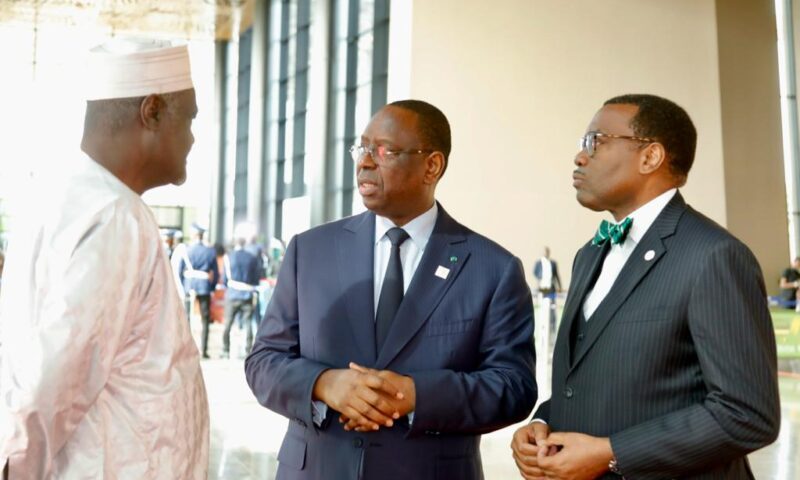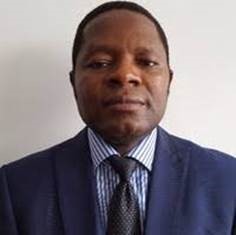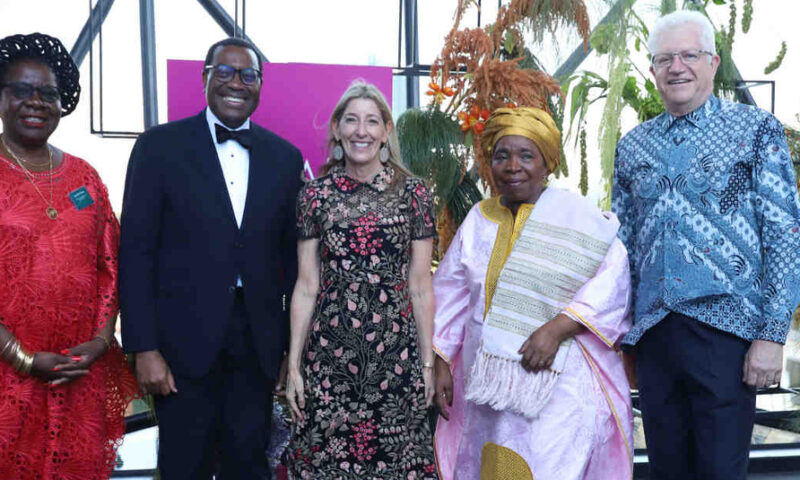All Posts in "Banking & Finance"
Africa food, agricultural market to hit $1trn by 2030
UBA appoints Ghanaian, Abiola Bawuah as first female CEO for Africa
By Favour Nnabugwu
United Bank for Africa Plc has appointed Ghanaian national, Abiola Bawuah, as its Africa new Chief Executive Officer (CEO).
Bawuah will oversee the bank’s operations across Africa, excluding Nigeria, according to the bank’s statement.
She is the first female CEO of the UBA Africa and her appointment demonstrates the bank’s commitment to diversity.
Before her appointment as the bank’s Africa CEO, Bawuah was UBA’s Regional CEO for West Africa, managing operations in nine subsidiaries including Benin, Burkina Faso, Cote d’Ivoire, Ghana, Guinea, Liberia, Mali, Senegal, and Sierra Leone. She had also served as the CEO of UBA Ghana.
Commenting on Bawuah’s appointment, the UBA Group’s Board Chairman, Tony Elumelu, said, “Abiola has contributed significantly to the growth of UBA Africa for close to a decade. She brings a wealth of experience in commercial banking, and stakeholder engagement. It also gives me great pleasure that with her appointment, the UBA Group Board has now become a majority female board.”
The bank also announced other key executive appointments across the group.
The appointments include: Regional CEO of UBA West Africa, Chris Ofikulu; Deputy Managing Director of UBA Ghana, Uzoechina Molokwu; Managing Director/CEO UBA Liberia, Ayokunle Olajubu; CEO of UBA UK, Theresa Henshaw; Deputy CEO in UBA America, Usman Isiaka; and Group Treasurer, Adeyemi Adeleke, all appointments subject to their various local regulatory approvals
AfDB engages over 40m farmers to produce 120m tonnes of food by 2025
By Favour Nnabugwu
The African Development Bank (AfDB) says that it has engaged more than 40 million farmers across the continent to produce 120 million tonnes of food by 2025.
The Bank’s Chief Economist, Prof. Kevin Chika Urama, discloes this in a chat with Nigerian journalists.
Prof. Kevin, decries the continent’s annual imports of over 100 million metric tonness of cereals alone at the cost of $75 billion.
He notes that recent external shocks, including Russia’s invasion of Ukraine in 2022, further demonstrated that Africa remains over-reliant on imports of food staples and agricultural inputs.
” Rising world food prices have a serious impact on households in Africa, exacerbating poverty.
“In sub-Saharan Africa, households spend up to 40% of their budget on food (compared to 17% in developed economies),” he said
He confidently says that the bank is on the move to change this narrative of overdependence on food imports from outside the continent.
“To improve farmers’ productivity and incomes, reduce post-harvest losses and increase agricultural output, and strengthen agro-food value chains, the Bank is focusing on providing modern technologies, quality seeds and inputs, modernizing agricultural tools, setting up standard processing infrastructures and adding value,” he said.
He says that the aim is to move from traditional subsistence agriculture to a modern and competitive African agro-industrial sector that can feed the entire African continent and even compete on international markets.
His words:” A vital element of the African Development Bank’s efforts to boost food production and agriculture in a climate-smart manner is its Technologies for African Agricultural Transformation (TAAT) platform.
TAAT has delivered heat-tolerant wheat varieties, drought-tolerant maize varieties, high-yield rice varieties and other climate-smart certified seeds to millions of Africa’s smallholder farmers
Ethiopia in particular has notched significant benefits as a result of TAAT.
Following the successful rollout of heat-tolerant wheat varieties in Ethiopia, average wheat yields increased from 2 tonnes per hectare to 4 tonnes.
As a result, Ethiopia did not import wheat in 2022 and expects to export wheat to its neighbors in 2023.
TAAT has mobilized investments of more than $800 million in the agricultural value chains of 21 African countries since its inception in 2018.
It has also mobilized $500 million in co-financing from the World Bank, the International Fund for Agricultural Development, the Islamic Development Bank, the Global Environment Facility, and other organizations.
In July 2022, the Bank Board approved an additional $27.41 million for ‘TAAT II,’ which will increase the productivity and incomes of farming households by giving them access to climate-resilient technologies in 36 low-income African countries by 2025.
TAAT-II will rely on a market-based model in partnership with the private sector to spread technologies and services (seeds, fertilizers, extension) on a larger scale.
To take advantage of the savannah, which covers 400 million hectares in Africa, a specific subprogram, ‘TAAT-S’.
The aim is to take advantage of these vast expanses by growing maize and soya competitively for the poultry industry – demand is high throughout the continent.
After a pilot project launched in Ghana in 2018, TAAT-S has been deployed in Côte d’Ivoire since 2021, followed by Congo-Brazzaville, Kenya, Nigeria, Mozambique, Uganda, Tanzania, Togo and Zambia by 2025. “
AfDB to invest &10bn to boost agriculture in Africa
CAPTION:
Regular diagnosis, targeted policy actions for African economies critical.- AfDB Chief Economist
The African Development Bank Group’s Acting Chief Economist and Vice President for Economic Governance and Knowledge Management, Professor Kevin Chika Urama, shares his thoughts on the inaugural Africa’s Macroeconomic Performance and Outlook report, released last Thursday.
Excerpts
The new biannual publication aims to provide African policymakers, global investors, researchers, and other development partners with an incisive, timely, evidence-based evaluation of the continent’s recent macroeconomic performance and short-to-medium-term outlook amid dynamic global economic developments.
Why is Africa’s Macro-Economic Performance and Outlook report important?
Like other world regions, Africa continues to face overlapping shocks such as the COVID-19 pandemic, climate change-related impacts, rising geopolitical tensions, supply chain disruptions and the tightening global financial conditions impacting key macroeconomic indicators.
The macroeconomic indicators include economic growth, financial sector development, interest and exchange rates, fiscal positions, current account positions, financial flows and debt dynamics that are making policymaking and investment decisions very challenging.
The Africa’s Macroeconomic Performance and Outlook report covers all African countries and aims to provide regular analysis on the recent evolution and short to medium-term outlook of these key macroeconomic indicators at the continental, regional and country levels. It also proposes policies to aid policymaking and investment decisions on the continent.
The report will be released twice a year – in the first and third quarters – to provide policymakers, investors and all stakeholders with real-time and evidence-based information on the factors shaping Africa’s development.
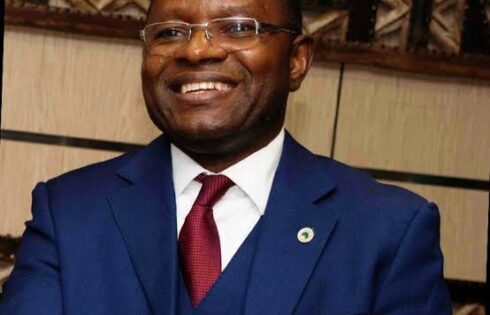 Prof. Kevin Chika Urama
Prof. Kevin Chika Urama
Why did the bank find it necessary to produce the report? What were the key objectives?
Africa’s Macroeconomic Performance and Outlook Report responds to a critical need for timely information to help decision-making in a context of heightened global and regional uncertainties.
Global macroeconomic conditions have recently become uncertain, with persistent multiple shocks that make policymaking and investment decisions challenging. With these global shocks and their interaction with prevailing pockets of domestic and regional risks, the need for regular diagnosis and targeted policy actions to address their impacts on African economies is critical.
With the publication of Africa’s Macroeconomic Performance and Outlook Report, The Bank –Africa’s premier knowledge broker — is reaffirming to African policymakers that it has a mandate to shape the African narrative on key issues of relevance to the continent’s development.
The report, therefore, serves as a compass for African countries on their economic situation, providing interested parties and stakeholders with an up-to-date evidence-based assessment of the continent’s recent macroeconomic performance and short-to-medium term outlook amid dynamic global economic developments.
2023 and 2024, higher than the projected global averages of 2.7 percent and 3.2 percent, respectively.
The stable outlook projected for 2023-2024 reflects continuing policy support in Africa, global efforts to mitigate the impact of external shocks and rising uncertainty in the global economy, the expected growth in demand for Africa’s commodities and green minerals as countries seek alternative sources of food and energy to counter the effects of Russia’s invasion of Ukraine, and green minerals to support global green transitions. globally.
Climate change could increase losses and damages due to extreme weather events and exacerbate fiscal risks for countries. The high dependence on exports of primary commodities with limited value addition exposes countries to commodity price volatility and could delay the structural transformation presented by the green transition.
With the low rates of COVID-19 vaccination across Africa, currently 26%, there is a moderate risk of new variants emerging, which could be amplified by a full reopening of the global economy.
We also have regional conflicts in key hotspots such as Burkina Faso, the Democratic Republic of Congo, Ethiopia, Mali, and Mozambique that could exert further pressures on the fiscal position of countries through increased security expenditure and reverse investment flows.
In addition, political risks could rise in 30 African countries. Algeria, the Democratic Republic of Congo, Egypt, Ethiopia, Libya, Madagascar, Nigeria, South Africa, and Zimbabwe are scheduled to hold national elections in 2023 or 2024
Managing foreign exchange reserves to reduce exchange-rate volatility and enhance export competitiveness could be part of effective risk-reducing agents.
Countries also need to implement local-content development and franchising policies to develop value chains and get more value from natural resources, especially in countries with minerals for green development.
African countries should boost regional trade to enhance resilience to spillovers from the global economic slowdown and reduce persistent trade deficits. Carrying out structural reform to boost regional trade can lead to a more vibrant regional market in the medium to long term.
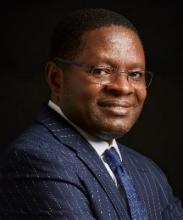 Prof Kevin Chika Urama
Prof Kevin Chika Urama
What would you say are the key takeaways from the report?
The report offers fundamental insights that African policymakers, global investors, researchers, and other development partners will find handy and utilize as an essential reference tool. It gives hope for continued economic resilience amid the heightened risk of global recession. Importantly, the economic growth was positive across all five African regions and that 53 of 54 African countries in 2022 with a stable outlook in the medium term against multiple shocks.
What would you say are the key takeaways from the report?
The report offers fundamental insights that African policymakers, global investors, researchers, and other development partners will find handy and utilize as an essential reference tool. It gives hope for continued economic resilience amid the heightened risk of global recession. Importantly, the economic growth was positive across all five African regions and that 53 of 54 African countries in 2022 with a stable outlook in the medium term against multiple shocks.
But the recovery and the economic resilience of African countries in the short-to-medium term come with cautious optimism given the considerable global uncertainty. Therefore, bold policy actions outlined above should be implemented to address the effects of rising inflation and sustain growth to a higher trajectory needed to reduce poverty. To meet the significant financing gaps in Africa, it is imperative to enact policies that can mobilize and leverage private financing for development in Africa
We can transform our cities- AfDB President tells Mayors from 15 African countries
CBN launches Nigerian Domestic Card, AfriGo
…Bans dollar charges on domestic transactions
By Favour Nnabugwu
The Central Bank of Nigeria (CBN) hasp/,/,,ll, launched the Nigerian National Domestic Card Scheme, AfriGo.
The AfrGo is aimed at creating a more robust payments system that would drive financial inclusion in the country.
Launching the card virtually, this morning, the Governor of the central Bank of Nigeria, Mr. Godwin Emefiele, said that transaction charges on all cards, would henceforth be paid in Naira, except for international transactions.
According to him, “AfriGo would be cheaper and would be a matter of national pride, with potential to boost financial inclusion.
“The National Domestic Card avails us the sovereignty of our data. Secondly, it comes at lower costs and thirdly, the issue of foreign exchange.
“At this time when foreign exchange challenges persist globally, it is important for me to say that we have come up with this card to ensure that all card online transactions will now effective immediately, begin to go on the Nigerian National Domestic System.
The VN Governor said, “At some point in the next few weeks, I am sure that the CBN will come up with the cut-off. All domestic card transactions that will be conducted in Nigeria will have to be through the Nigerian Domestic Cards.
“Your existing cards are fine. You can continue using them but given that charges by foreign cards are in dollars, we will no longer pay dollars for the charges on those cards.
“We will only pay dollars for charges on transactions that are done outside Nigeria. NIBSS, the CBN and Nigerian banks will work together to see how to segregate those transactions. To ensure that we pay fees or charges for international transactions that are conducted on both domestic cards, Visa or Master Cards, as they are known today.”
“We will bar domestic charges from the Nigerian foreign exchange market at some point in the very near future.”
The governor said that the introduction of AfriGo was not an attempt to discourage international investors’ operations in the Nigerian payments space but that it had become necessary owing to its obvious advantages.
He said, “This effort is not an attempt to prevent international service providers from continuing to provide services in Nigeria. Rather, it aimed at providing more options for domestic consumers, while also promoting the delivery of services in a more cost-effective and competitive manner.
“The CBN is committed to a robust and safe payment system and welcomes innovations from domestic and foreign investors.
“The Nigerian market is vast and the current participants have done so in the last 12 years to transform the ecosystem. Yet there is much ground to cover as millions of Nigerians are still without cards to consummate transactions.
“I am convinced that the National Domestic Card scheme will make this a reality in the coming months. We can no longer neglect the vast majority of Nigerians, he added.
Africa growth to increase by 4% in 2023, 2024
CBN sets up Cash Swap Centres in 774 LGAs
By Favour Nnabugwu
The Central Bank of Nigeria ( CBN) has established Cash Swap Centres across the 774 Local Government Ares of the federation.
This was contained in a circular issued by the apex bank at the weekend. signedby Haruna Mustafa an Musa Jimoh, Directors of Banking Supervision and Payments Systems , respectively and dated January 20, 2023, the circular indicated that the Cash Centres would commence operations tomorrow..
Addressed to Deposit Money Banks (DMBs), Mobile Money Operators , Super Agents and Agents, the circular said that the exercise would enable rural dwellers to seamlessly change their old Naira Notes for the redesigned ones.
It reads in part::I “n furtherance of its Naira Redesign policy, the Central Bank of Nigeria (CBN) has sustained its nationwide awareness/sensitization programmes, enforced speedy collection of the new notes at CBN branches by the Deposit Money Banks (DMBs) and mandated issuance of the new notes through Automated Teller Machines (ATMs) to ensure distribution is fair, transparent and evenly spread across the country.
“In addition to these measures and in recognition of the need to maximise the channels through which underserved and rural communities can exchange their Naira, the Bank is launching a cash swap programme in partnership with Super Agents & DMBs. The programme enables citizens in rural areas or those with limited access to formal financial services to exchange old Naira notes for redesigned notes.
“The initiative takes effect from Monday, January 23, 2023 as follows: “The old N1000, N500, N200 notes can be exchanged for the newly redesigned notes and/or the existing lower denominations (N100, N50 and N20, etc) which remain legal tender.
*The agent shall exchange a maximum of N10,000 per person. Amounts above N10,000 may be treated as cash-in deposit into wallets or bank accounts in line with the cashless policy. BVN, NIN, or Voter’s card details of the customers should be captured as much as possible.
*To promote financial inclusion, this service is also available to anybody without a bank account. Agents may, on request instantly open a wallet or account, leveraging the CBN Tiered KYC Framework. This will ensure that this category of the populace are able to exchange or deposit their cash seamlessly without taking unnecessary risk or incurring undue cost.
*Agents shall sensitize customers on opening wallets/ bank accounts and the various channels for conducting electronic transactions.
*Designated agents are eligible to collect the redesigned notes from DMBs in line with the Revised Cash Withdrawal Limit policy. Agents are also permitted to charge cash- out fees for the cash swap transactions but prohibited from charging any further commissions to customers for this service.
*Agents shall render weekly returns to their designated banks regarding the cash swap transactions. DMBs shall in turn render same to the CBN on a weekly basis.
*Principals (Super Agents, MMOs, DMBs) shall be held accountable for their agents’ adherence to the above guidelines.
*Cash Swap agents will be readily identifiable in all local governments, particularly those in the rural areas.
*The CBN will continue to monitor implementation of the programme and provide further guidance as may be necessary.




